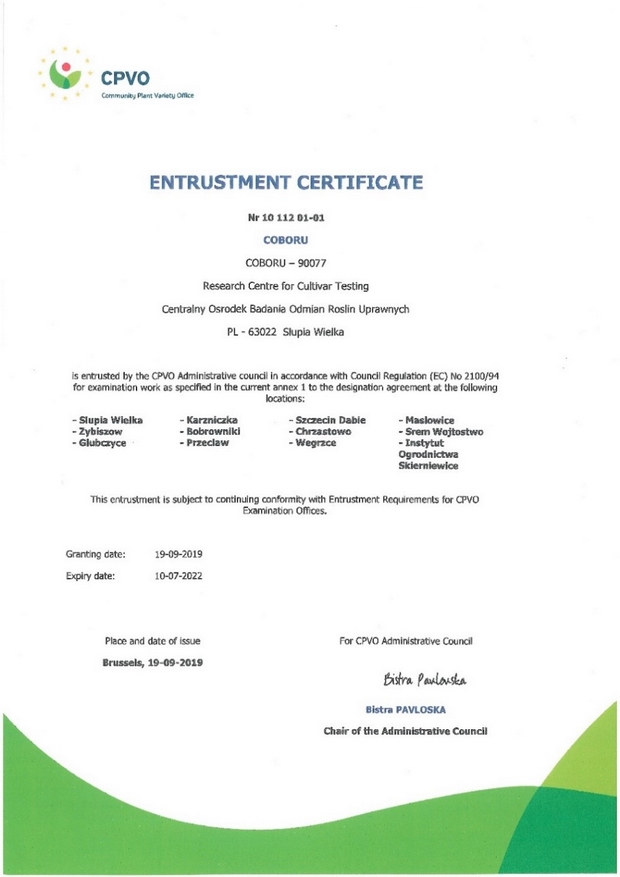The DUS testing of varieties is one of the requirements for their entry into the National List
and/or for granting of Plant Breeders' Rights. DUS tests are generally conducted according
to the CPVO protocols and/or the UPOV guidelines. Tests
are carried out at one or two Experimental Stations for Variety Testing and they usually last one, two or
three vegetation cycles.
In DUS testing some biochemical methods (e.g.electro-phoresis) are occasionally also used.
The variety shall be deemed to be distinct if it is clearly distinguishable from any other variety whose existence is a matter of common knowledge at the date of filing an application.
The variety shall be deemed to be uniform if, subject to the variation that may be expected from particular features of its propagation, it is sufficiently uniform in its relevant characteristics.
The variety shall be deemed to be stable if its relevant characteristics remain unchanged after repeated propagation or, in the case of a particular cycle of propagation, at the end of each such a cycle.
According to the decision of the Community Plant Variety Office (CPVO) in Angers Administrative Council, of 11 April 2024, the Research Centre for Cultivar Testing (COBORU) has been entrusted for carrying out variety distinctness, uniformity and stability (DUS) tests for the purposes of Community Plant Variety Rights. Currently, COBORU is entrusted for 244 taxa, including:
- 166 ornamental plants,
- 36 agricultural plants,
- 29 fruit and berry plants,
- 13 vegetable plants.
